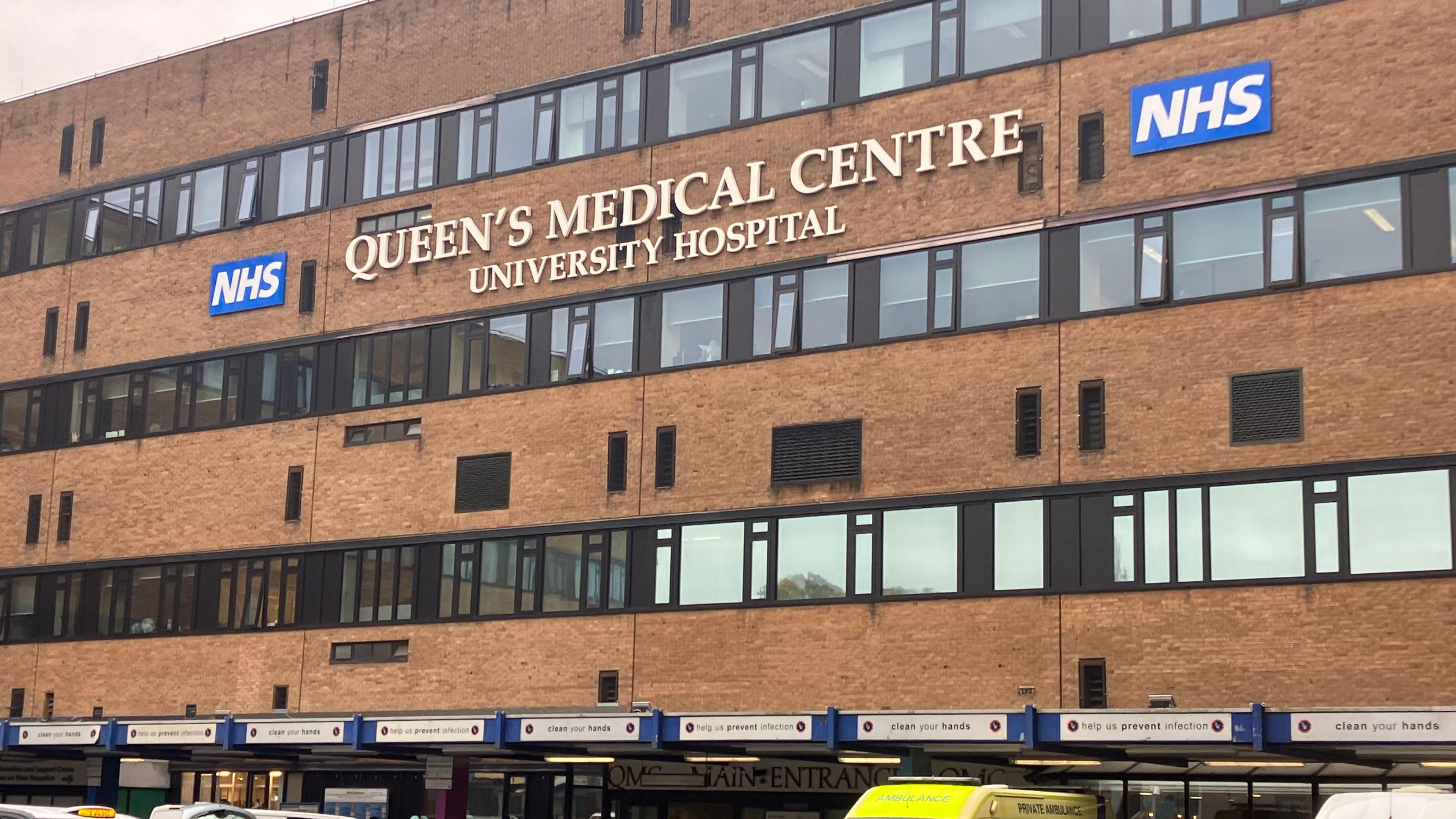Patients' dignity 'compromised' by mortuary lift

A report has highlighted the improvements Nottingham University Hospitals (NUH) NHS Trust needs to make
- Published
A lift that is the "sole means of ensuring the dignified transportation of deceased patients" in a hospital mortuary urgently needs to be refurbished or replaced, a report has found.
A mortuary compliance report has highlighted the improvements Nottingham University Hospitals (NUH) NHS Trust needs to make to body storage facilities at the Queen's Medical Centre (QMC).
The poor condition of a lift was deemed a "critical issue", meaning a failure of it would severely impact the release and receipt of deceased patients.
NUH said it had since made improvements to meet recommendations and was "undertaking a lift replacement programme".
The purpose of the report was to assure the trust board that the mortuary and body storage facilities at the QMC and the City Hospital campus were fully compliant with the Human Tissue Authority (HTA) standards governing post-mortem activities.
Frequent breakdowns
The report, due to be discussed at the NUH board's open meeting on Thursday, found two potential gaps in compliance.
One was the issue with the lift that transports bodies to funeral directors from the QMC Undercroft Body Stores, which houses two-thirds of the trust's patients.
The lift's age, frequent breakdowns, and the difficulty in sourcing replacement parts means it needs replacing or refurbishing.
There was also a need for an additional lift to ensure capacity and contingency, said the report.
In the event of a breakdown, staff have been trained to use the bed store lift but "this alternative route compromises the dignity of the deceased during transport, further highlighting the need for an immediate resolution".
The second key issue was freezer storage and patient monitoring.
The assessment revealed a lack of sufficient deep freeze storage to adequately monitor patients whose storage duration exceeds the 30-day guideline.
The report recommended the trust needed to increase the freezer capacity.
However, the trust said it had not encountered a situation in which it was necessary to freeze patients for storage beyond the 30-day period.
A spokesperson for NUH said it was adhering to HTA guidance and that following its last inspection in October 2023, it had improved its processes for monitoring the condition of deceased patients to meet the recommendation.
The spokesperson added: "Patients are checked every 10-15 days from admittance and assessed as to whether they require transfer to deep-freeze storage.
"After 30 days, they continue to be checked every 10 to 15 days and are transferred if required.
"We are undertaking a lift replacement programme, with lifts prioritised by risk, and have increased servicing and checks in the meantime.
"We have provided the evidence to the HTA to close all of the shortfalls identified at the inspection in 2023 and the report for NUH was updated on the HTA website to reflect closure and compliance."
Get in touch
Tell us which stories we should cover in Nottingham
Follow BBC Nottingham on Facebook, external, on X, external, or on Instagram, external. Send your story ideas to eastmidsnews@bbc.co.uk, external or via WhatsApp, external on 0808 100 2210.